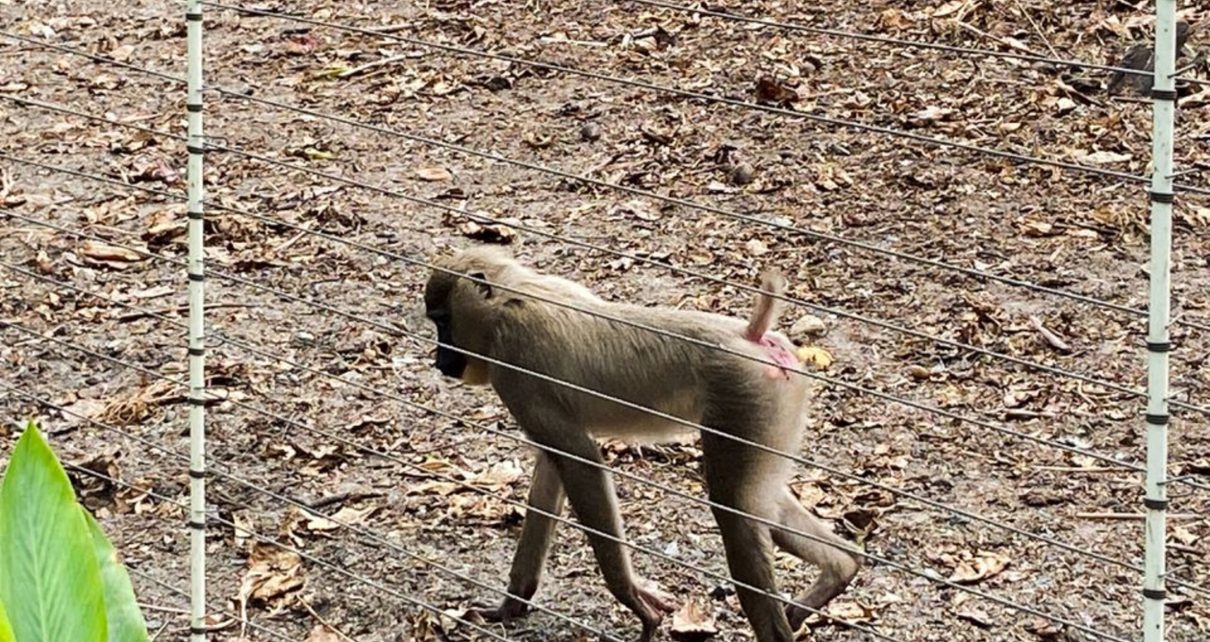Sugar Ray is about 20 years old, a venerable age for a drill monkey whose life got off to a tragic start: clinging to his mother’s chest as a baby, he lost her and his left hind leg to a hunter’s machete blow.
Maimed and orphaned, he would likely have died had he not been rescued by the Drill Ranch, a haven for the species in southeastern Nigeria, where he has had a good life despite missing a lower limb.
Found only in Nigeria, Cameroon and Equatorial Guinea, drills have pitch-black faces and light brown-grey fur. Males have a red streak under their mouths and colourful rumps with shades of red and blue.
They number a few thousand in the wild and are at risk of extinction because their forest habitat is shrinking due to farming and logging and because they are hunted for their meat.
Founded by two Americans in 1991, the Drill Ranch started with five drills and now cares for more than 600 at two sites, in the city of Calabar and in the remote Afi Mountain forest. All were either rescued or born within the ranch.
The drills live in forested enclosures, form social groups and breed successfully. Sugar Ray, who was named after the boxer Sugar Ray Leonard because of his toughness, is a father and grandfather to many.
Funded by donations, the ranch hosts free visits, boosting awareness of the species. It also supports the local economy, providing jobs and sourcing food for the animals from small-scale farmers, predominantly women.
INSECURITY
But the project is not immune from the effects of Nigeria’s intractable poverty, high crime rates and lack of law enforcement, which drive activities such as illegal hunting, land clearing for farming and logging.
The ranch has a long-term ambition to release drills to boost the numbers and gene pool of the wild population, but this is hard to achieve in an ever-shrinking habitat where contact with humans can be lethal.
“The ones that have guns … when they get to the farm and see the monkeys, they kill them,” said Solomon Abang, who grows bananas near the ranch, explaining that farmers have zero tolerance for wild animals eating their crops.
Insecurity is a problem for people as well as for animals.
In January 2020, the ranch was engulfed in a crisis that started with a burglary at the Afi camp office. Police detained five Nigerian staff members for questioning, and two of them were killed when a police vehicle in which they were being transferred crashed.
Angry about the deaths, a group of young men from the nearby village of Buanchor ransacked the Afi camp, manhandled ranch co-founder Liza Gadsby and site manager Zack Schwenneker, and took them by force to Buanchor, where they were held for hours.
Calm returned, but no one has been held accountable for the violence. “For me, the feeling of safe haven and security in our camp is gone,” said Gadsby. (REUTERS)




